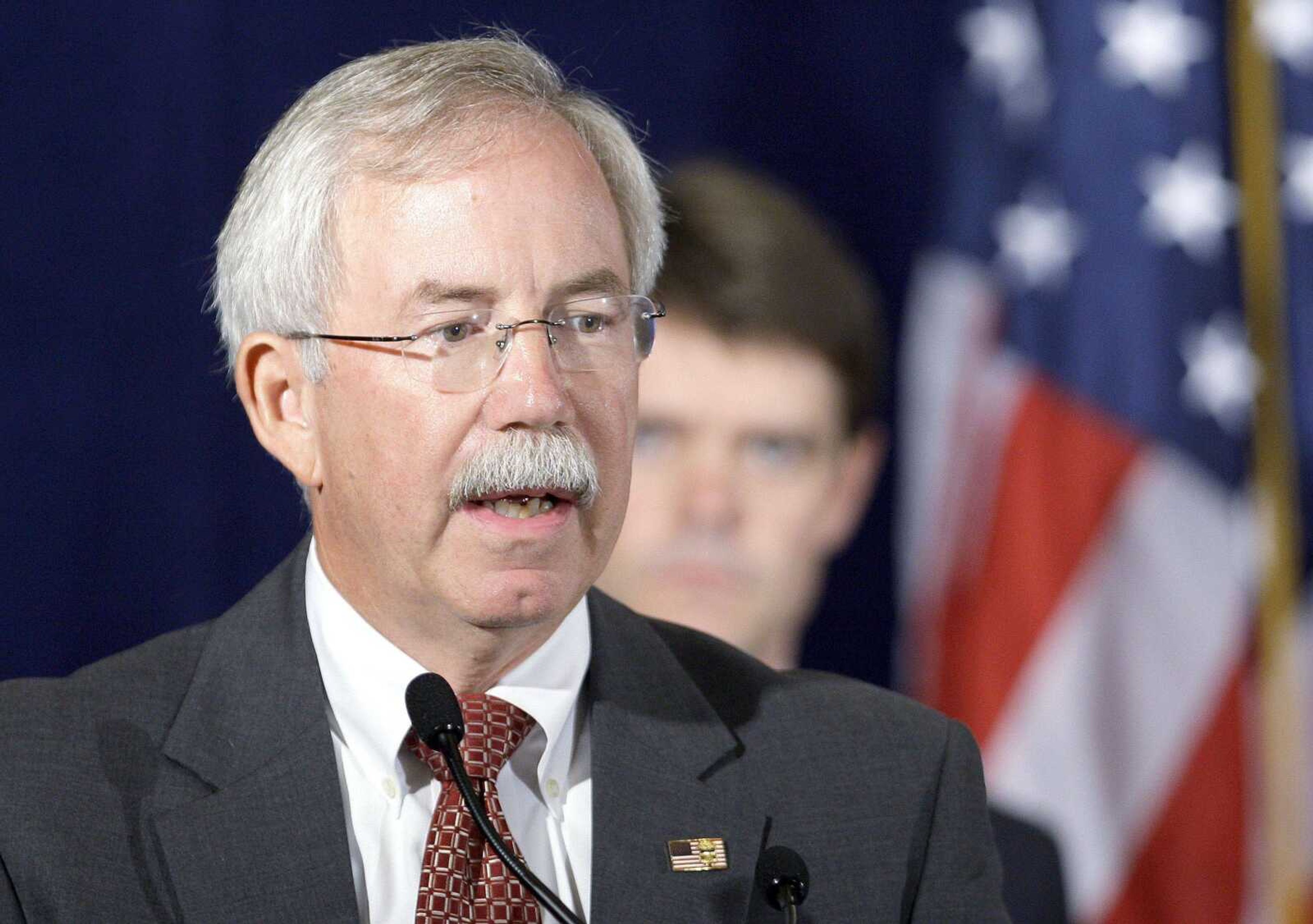Justice Department faulted in gun-trafficking operation
WASHINGTON -- The Justice Department's internal watchdog Wednesday faulted the agency for misguided strategies, errors in judgment and management failures during a bungled gun-trafficking probe in Arizona that disregarded public safety and resulted in hundreds of weapons turning up at crime scenes in the U.S. and Mexico...
WASHINGTON -- The Justice Department's internal watchdog Wednesday faulted the agency for misguided strategies, errors in judgment and management failures during a bungled gun-trafficking probe in Arizona that disregarded public safety and resulted in hundreds of weapons turning up at crime scenes in the U.S. and Mexico.
Two senior officials left the department, one by resignation and one by retirement, upon the report's release.
In the 471-page report, Inspector General Michael Horowitz referred more than a dozen people for possible department disciplinary action for their roles in Operation Fast and Furious and a separate, earlier probe known as Wide Receiver, undertaken during the George W. Bush administration.
The report did not criticize Attorney General Eric Holder, but said lower-level officials should have briefed him about the investigation earlier.
The report found no evidence that Holder was informed about the Fast and Furious operation before Jan. 31, 2011, or that the attorney general was told about the much-disputed gun-walking tactic employed by the department's Bureau of Alcohol, Tobacco, Firearms and Explosives.
Gun-walking was an experimental tactic, barred under long-standing department policy. ATF agents in Arizona allowed suspected "straw purchasers," in these cases believed to be working for Mexican drug gangs, to leave Phoenix-area gun stores with weapons in order to track them and bring charges against gun-smuggling kingpins who long had eluded prosecution.
Because of thin ATF staffing and weak penalties, the traditional strategy of arresting suspected straw buyers as soon as possible had failed to stop the flow of tens of thousands of guns to Mexico -- more than 68,000 in the past five years. The operation was a response to criticisms of the agency's anti-smuggling efforts.
The inspector general found fault with the work of the senior ATF leadership, the ATF staff and U.S. attorney's office in Phoenix and senior officials of Justice's criminal division in Washington. He also said that poor internal information-gathering and drafting at Justice and ATF caused the department to initially misinform Congress about Fast and Furious.
"The inspector general's report confirms findings by Congress' investigation of a near total disregard for public safety in Operation Fast and Furious," said Rep. Darrell Issa, chairman of the House Oversight and Government Reform Committee, which has been investigating Operation Fast and Furious since early 2011.
Two of the 2,000 weapons thought to have been acquired by illicit buyers in the Fast and Furious investigation were recovered at the scene of a shootout that claimed the life of U.S. border agent Brian Terry. About 1,400 of the total have yet to be recovered.
Holder noted in a statement that the report confirmed his assertions that the flawed strategies were driven by field agents without his knowledge or approval and that department did not set out to misinform Congress.
He said the report's disciplinary recommendations are being pursued and "we now have two men in custody and we will continue to aggressively pursue the remaining fugitives to ensure justice for agent Terry, his family and his fellow law enforcement agents."
Fast and Furious has produced charges against 20 gun traffickers, 14 of whom have pleaded guilty so far.
One of those criticized in the report, former ATF acting director Kenneth Melson, who headed that agency during the Fast and Furious investigation, retired upon release of the report.
"Melson made too many assumptions about the case," the report stated. "Melson should have asked basic questions about the investigation, including how public safety was being protected."
Melson responded in a written statement: "While I firmly disagree with many of the speculative assumptions, conclusions and characterizations in the inspector general's report, as the acting director of the agency I was ultimately responsible for the actions of each employee."
Another of those criticized, Justice Department career attorney Jason Weinstein, resigned. Weinstein was a deputy assistant attorney general in Justice's criminal division in Washington.
"Weinstein was the most senior person in the department in April and May 2010 who was in a position to identify the similarity between the inappropriate tactics used in Operations Wide Receiver and Fast and Furious," the report said. ATF agents in Arizona conducted Wide Receiver in 2006 and 2007 and began Fast and Furious in October 2009.
Weinstein's lawyer, Michael Bromwich, called the report's criticism "profoundly wrong" and "deeply flawed."
Among others the report singled out for criticism were former acting Deputy Attorney General Gary Grindler; Assistant Attorney General Lanny Breuer who heads the criminal division; Arizona U.S. Attorney Dennis Burke; and Holder's own former deputy chief of staff, Monty Wilkinson.
The report said:
--Wilkinson should have promptly informed Holder of the fact that two guns found at the scene of Terry's slaying were among the 2,000 illicitly acquired weapons in Operation Fast and Furious.
--Grindler relied on the FBI to investigate the Terry killing. That reliance was misplaced, given that the bureau did not have the responsibility to determine whether errors in ATF's investigation led to the weapons ending up at the murder scene.
--Breuer should have promptly informed Deputy Attorney General James Cole or Holder about the gun-walking problems in the earlier gun probe, Operation Wide Receiver.
The inspector general said he found no evidence that former Attorney General Michael Mukasey, who took office late in the Bush administration after Wide Receiver was ended, was ever informed that it used gun-walking.
Connect with the Southeast Missourian Newsroom:
For corrections to this story or other insights for the editor, click here. To submit a letter to the editor, click here. To learn about the Southeast Missourian’s AI Policy, click here.










